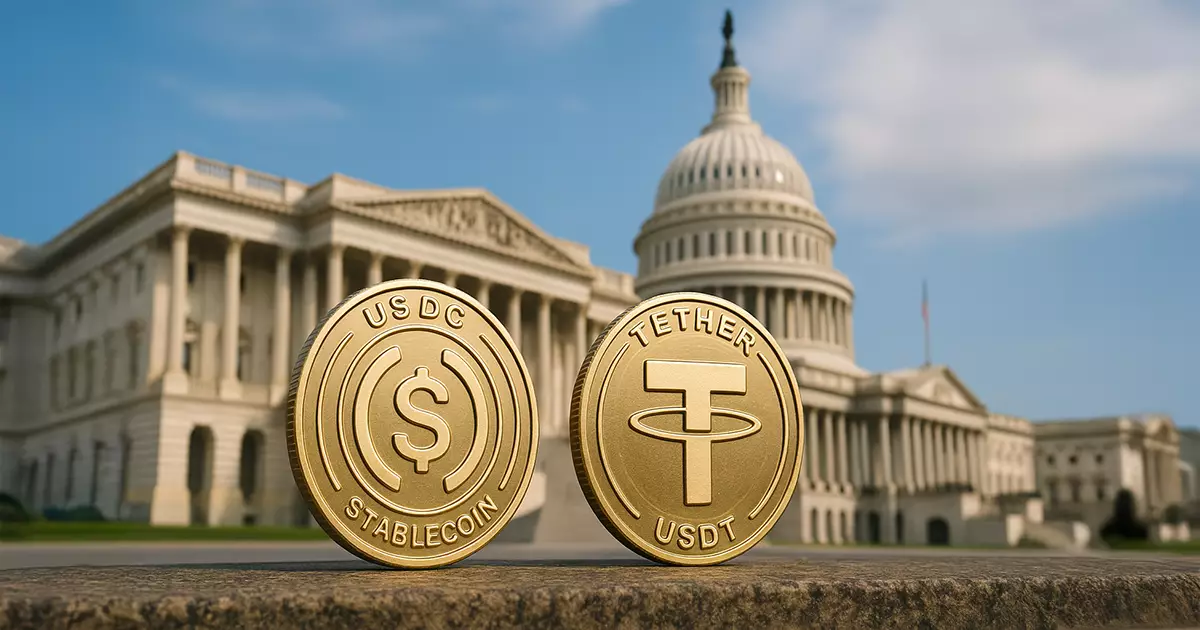In an era where technology gallops ahead while regulations crawl, a group of nine Democratic Senators has thrown a wrench in the gears of progress by expressing reluctance to support the GENIUS Act unless substantial amendments are implemented. Released on May 3, their joint statement revealed a troubling lack of coherence, raising concerns about the future of stablecoins in the United States. This debacle illustrates that even as innovation beckons, political maneuvering can stifle meaningful advancement, placing American competitiveness at stake.
The Senators involved—Raphael Warnock, Catherine Cortez Masto, Ben Ray Luján, John Hickenlooper, Adam Schiff, and others—appear to have hitched their political fortunes to the notion that perfection is the enemy of progress. While they genuinely claim to seek a bipartisan approach, their insistence on significant revisions complicates an already intricate legislative process, which may alienate allies and delay essential regulations for stablecoins.
Revisiting the Foundation of Trust
The existing version of the GENIUS Act has attracted criticism for its perceived shortcomings in addressing vital issues such as anti-money laundering (AML), national security, and the protection of consumers. In their statement, the dissenting Senators voiced fears that the lack of robust protections would leave consumers “unprotected and vulnerable.” Yet, rather than sidestepping the bill altogether, they might better serve the American public by becoming constructive negotiators who can work collaboratively to shape legislation that meets both regulatory expectations and innovative capabilities.
However, this expectation raises another critical concern: the fine balance between regulation that guarantees safety and an oppressive framework that stifles growth. With the underlying directive of instilling trust in digital currencies, the lack of commitment from key senators to pursue a timely and effective regulatory framework makes one ponder if political calculations are overshadowing the urgent need for clear and enforceable guidelines.
The Tug of War Over Financial Sovereignty
Senator Elizabeth Warren’s vocal opposition highlights tensions between legacy banking institutions and disruptive fintech solutions, pointing to the potential for big tech companies to monopolize the market for issuing stablecoins. Historically, this philosophical divide has shaped regulatory agendas, with traditional industries often advocating for stringent measures that stymie innovation under the guise of consumer protection.
Yet, the GENIUS Act aims to provide a potential framework where innovation can occur alongside accountability. Under its proposed structure, stablecoins would have backing by U.S. dollars or other stable assets, thereby instilling essential trust and stability. If lawmakers shy away from this opportunity, they risk perpetuating a status quo that hinders competition and consumer choices in the evolving financial landscape.
Bipartisanship: The Necessary Foundation or a Broken Promise?
It’s ironic that lawmakers, who claim to champion bipartisanship, allow such fundamental disagreements to derail progress on a piece of legislation that holds great promise for establishing the U.S. as a leader in the digital asset space. The call for regulatory clarity is not merely ideological; it represents a roadmap for transitioning into a system that accommodates both past practices and future innovations.
With mention of amendments being made to meet the demands of dissenting Senators, one wonders whether this legislative dance is indeed moving toward a productive outcome or if it becomes a prolonged tug-of-war with no winner. Will the revisions, designed to appease some critics, alienate others, leaving the legislation fragmented and void of the clarity it seeks?
The Strategic Implications of Delay
Following the statement from the nine Democratic Senators, uncertainty looms over the passage timeline of the GENIUS Act, with Republican leads like Senator Bill Hagerty eager to advance it. The erosion of bipartisan enthusiasm might eventually manifest in prominent delays, impacting U.S. efforts to maintain leadership in the ever-evolving digital finance sector. Such setbacks undermine the potential benefits related to consumer protection and fostering domestic innovation.
Hagerty’s assertion that the U.S. must enact legislation to maintain its financial dominance makes it abundantly clear that the stakes are high not only for technological innovation but also for national interests. Delaying regulatory measures fundamentally alters the competitive landscape, allowing other nations to assert control over digital assets, thereby undermining the U.S. dollar’s supremacy.
In an increasingly interconnected world, where financial ecosystems are gravitating towards digital assets, procrastination may result in a debilitating lag. Will Congress seize this fleeting opportunity, or will political pettiness suffocate the industry’s transformation? This is the pivotal moment where bipartisan cooperation is not just desirable; it’s essential.

